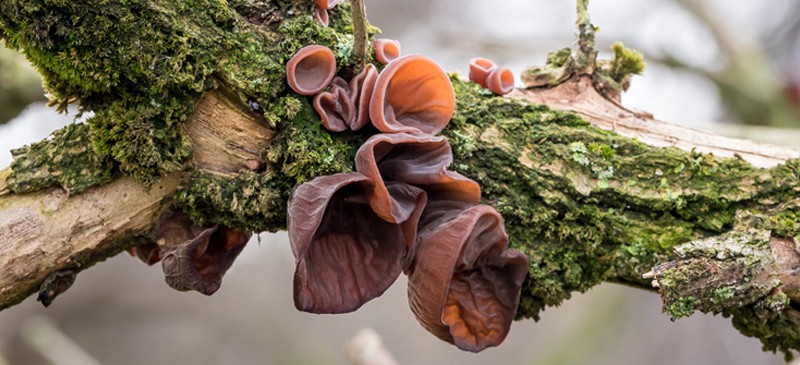This Dr. Axe content is medically reviewed or fact checked to ensure factually accurate information.
With strict editorial sourcing guidelines, we only link to academic research institutions, reputable media sites and, when research is available, medically peer-reviewed studies. Note that the numbers in parentheses (1, 2, etc.) are clickable links to these studies.
The information in our articles is NOT intended to replace a one-on-one relationship with a qualified health care professional and is not intended as medical advice.
This article is based on scientific evidence, written by experts and fact checked by our trained editorial staff. Note that the numbers in parentheses (1, 2, etc.) are clickable links to medically peer-reviewed studies.
Our team includes licensed nutritionists and dietitians, certified health education specialists, as well as certified strength and conditioning specialists, personal trainers and corrective exercise specialists. Our team aims to be not only thorough with its research, but also objective and unbiased.
The information in our articles is NOT intended to replace a one-on-one relationship with a qualified health care professional and is not intended as medical advice.
Wood Ear Mushroom Benefits the Heart, Immunity & More
May 20, 2019

Although once used solely in traditional forms of medicine, more and more research has started to reinforce the incredible benefits of mushrooms. In fact, certain varieties have been linked to many impressive health benefits, ranging from lower cholesterol levels to decreased cancer growth and more. The wood ear mushroom, in particular, is an ingredient that has become increasingly popular in stir-fries and soups. Not only does it bring a crisp, snappy texture to meals, but it’s also jam-packed with an assortment of important nutrients and antioxidants.
So what are wood ears in Chinese cooking? And how can these medicinal mushrooms impact your health? Here’s what you need to know.
What Are Wood Ear Mushrooms?
Wood ear mushrooms are a tasty and unique type of edible fungi that go by a number of different names, including Chinese wood ear mushroom, black mushrooms, jelly ear mushrooms or their scientific name, Auricularia auricula-judae.
These mushrooms stand out from other mushroom varieties because of their crunchy texture, dark color and interesting appearance. Unlike other mushrooms, wood ear mushrooms don’t have a stem or cap. They do have an ear-like shape, which is how they originally earned their distinct nickname. However, they are still sometimes confused with the white wood ear mushroom and the elephant ear mushroom, as well as cloud ear fungus (kikurage mushroom), another type of edible tree mushroom that is distantly related to the wood ear.
The black wood ear mushroom is often featured in Asian cooking and widely enjoyed for its crisp texture and mild flavor. So what does black fungus taste like? Although they have a strong woody flavor when raw, the mushrooms tend to take on whatever flavors they are cooked with in dishes, making them a great addition to soups, stir-fries and salads.
Nutrition Facts
Wood ear mushrooms are a great source of many important vitamins and minerals. In fact, each serving contains a low amount of wood ear mushroom calories but is packed with copper, pantothenic acid, selenium and riboflavin.
One cup (about 99 grams) of raw wood ears contains approximately:
- 25 calories
- 7 grams carbohydrates
- 0.5 grams protein
- 0.5 milligrams copper (56 percent of the DV)
- 2 milligrams pantothenic acid (40 percent of the DV)
- 11.1 micrograms selenium (20 percent of the DV)
- 0.2 milligrams riboflavin (15 percent of the DV)
- 0.08 milligrams thiamine (7 percent of the DV)
- 25 milligrams magnesium (6 percent of the DV)
- 0.7 milligrams zinc (6 percent of the DV)
- 0.09 micrograms vitamin B6 (5 percent of the DV)
- 19 micrograms folate (5 percent of the DV)
- 0.1 milligrams manganese (4 percent of the DV)
In addition to the nutrients listed above, wood ear mushrooms also contain a small amount of potassium, phosphorus and calcium.
Health Benefits
1. May Help Fight Cancer Cells
Packed with disease-fighting antioxidants, promising preliminary research suggests that dried wood ear mushroom extract could help fight the growth of cancer cells. One in vitro study conducted by Kyungpook National University in Korea found that wood ear mushroom extract was effective at killing off tumor cells of the lungs, bones and stomach. Keep in mind, though, that more research is needed to evaluate whether wood ear mushrooms may have a beneficial impact on cancer growth in humans as well.
2. Supports Heart Health
Some studies have found that wood ear fungus could have powerful hypolipidemic properties, which can help keep cholesterol levels in check and protect against heart disease. According to one animal model published in Mycobiology, administering wood ear mushroom extract to mice led to massive reductions in levels of triglycerides, total cholesterol and bad LDL cholesterol. It also decreased the atherogenic index by 40 percent, which is a measure used to predict the risk of heart disease and plaque buildup in the arteries.
3. Loaded with Antioxidants
Research shows that wood ear mushrooms are jam-packed with antioxidants and polyphenols. That can have a huge impact on overall health. Antioxidants are compounds that help fight free radical formation and protect cells against oxidative damage. Antioxidants also play a central role in health and disease, with research indicating that they could aid in the prevention of chronic conditions like cancer, heart disease and rheumatoid arthritis.
4. Blocks Bacterial Growth
In addition to being a great source of antioxidants and micronutrients, wood ear mushrooms also possess potent antimicrobial properties that can help ward off certain strains of bacteria. A 2015 in vitro study in the International Journal of Medicinal Mushrooms actually found that wood ear mushroom was effective at blocking the growth of Escherichia coli and Staphylococcus aureus, two types of bacteria that can cause infections in humans.
5. Good Source of Copper
Each serving of wood ear mushrooms packs quite a punch when it comes to nutrition. These small but powerful mushrooms are an especially good source of copper, a micronutrient that is essential to several aspects of health. Not only is copper important for iron metabolism, but it’s also needed for heart health, lung function and more. A deficiency in this key nutrient can have some serious side effects, ranging from diarrhea and impaired immunity to weakened bones, nerve damage, anemia and heart problems.
Where to Find and How to Use
Wood ear mushrooms grow worldwide and can be found on wood in cool temperatures, usually around early spring or late fall. Although they are sometimes confused with other species, most wood ear mushroom lookalikes are actually edible as well.
Besides foraging for them yourself, you can also find the mushrooms at many specialty stores and online retailers. It’s much easier to find the wood ear mushroom dried, but it can simply be reconstituted by soaking in water overnight to enjoy it fresh as well.
There are plenty of options for how to cook wood ear mushroom, and it can be used to add a crisp texture to just about any dish. It can be added to stir-fries, mixed into soups, sautéed with veggies or enjoyed as part of a tasty mushroom salad.
Recipes
There are plenty of dried and fresh wood ear mushroom recipe options out there, making it easy to enjoy this flavorsome edible fungi. Here are a few simple recipes to help get you started:
- Wood Ear Mushroom Salad
- Chicken and Wood Ear Mushroom Soup
- Wood Ear Mushroom Ramen
- Bean Sprout and Wood Ear Mushroom Stir-Fry
Risks and Side Effects
For most, this edible black fungus can be a safe and healthy addition to the diet. However, it’s important to practice proper food safety and clean mushrooms thoroughly prior to consumption. Additionally, those with an allergy should not consume wood ear mushrooms to avoid food allergy symptoms like nausea, itching, swelling and hives.
In some cases, wood ear mushrooms may act as an anticoagulant and prevent blood from clotting. Therefore, it’s recommended to talk to your doctor prior to consumption if you take blood thinners like warfarin or coumadin to prevent an interaction with these medications.
Final Thoughts
- Wood ear mushrooms are a type of edible mushroom often used to enhance the texture of dishes in many Asian cuisines.
- They’re widely available in dried form and can be added to a wide variety of different dishes, including soups, salads, stir-fries and more.
- In addition to being high in copper, pantothenic acid and antioxidants, these delicious mushrooms have also been linked to a number of wood ear mushroom benefits.
- In fact, research shows that these mushrooms could potentially improve heart health, fight bacteria and block cancer cell growth.
Read Next: Turkey Tail Mushroom: The Disease-Fighting, Immune-Boosting Fungus

